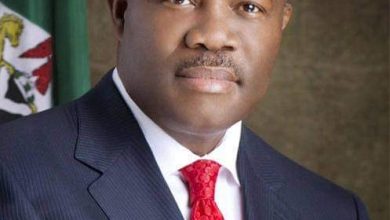BDC Market Implodes as the CBN Stops Sale of Dollars to the Parallel Market

Nigeria’s Bureau de Change (BDC) market went into a tailspin at the beginning of last week as traders buckled under the Central Bank of Nigeria’s decision to discontinue the sale of weekly foreign exchange (FX) to the market. The CBN’s decision was on the back of it considered to be the wanton and reckless abuse of the terms with which FX was sold to the dealers. The rates in the BDC market tumbled from N500.00/US$ on Monday, July 26, 2021, when the CBN’s Monetary Policy Committee (MPC) commenced its 280th MPC Meeting to N520/US$ on Tuesday, July 27, 2021, the day the CBN announced its decision to stop the sale of weekly dollars to the parallel market.
By Thursday, July 29, 2021, rates dropped further with the Naira trading at an exchange rate of N525/US$. The week’s BDC exchange rate closed at the deflated N525/US$ on Friday, July 30, 2021. The consequence of the CBN action was a crushing blow to BDC operators and a Jackhammer on domestic retail buyers. The cost of funding trade Invisibles suddenly soared with no ceiling in immediate sight (see Chart 1 below).
Chart 1: W-o-W Movements of the Naira at the I & E and BDC FX Windows
Source: FMDQ, Abokifx, Proshare Research
Be that as it may, analysts see the CBN’s decision as the smart way to go given the depleted foreign reserves, oil price uncertainty, and rampant price gauging by brazen BDC traders. They argue that the high BDC rates would soon slide as commercial banks begin to sell retail amounts of dollars to customers through various banking hall desks across the country.
In what seems a bold step towards achieving the unification of exchange rates in Nigeria, the CBN Governor Godwin Emefiele announced at the just-concluded two-day MPC meeting held on the 26th and 27th July 2021, that going forward, the regulator will seize the sale of Forex to BDC operators. According to data gotten from CBN, the number of licensed BDC operators as of June 30, 2021, was 5689. The governor also stated during the press briefing, 500 license applications are received every month, going forward no new BDC licenses will be processed or issued, this also applies to licenses currently being processed.
Before the cessation of supply, about US$110m was sold to BDC operators every week, but this amount would now be re-channeled to commercial banks to meet legitimate FX needs highlighted in the CBN’s FX manual. The policy move by the CBN was influenced by the alleged flagrant abuse of the sales and pricing rules that should have guided BDC transactions. The CBN saw the role of BDCs to be a channel for retail buyers to access FX for a variety of invisible transactions such as the payment of medical expenses, school fees and allowances, and other sundry activities. These FX buyers typically needed dollar amounts of US$5,000 or less.
However, licensed BDC operators took a stab at the eye of the CBN policy by engaging in wholesale trading activities at rates that were a premium to those of commercial banks. This allegedly resulted in banks using BDCs as pipelines for arbitraging higher FX returns and starving the traditional bank-situated wholesale business of funds. The massive rewards of FX rent-seeking were like honey to a bee it was overwhelmingly attractive leading to a rash of new license requests by high net worth individuals who saw the BDC market as a risk-free secondary string of cash flow. Central Bank Governor, Emefiele equally observed that some Development Financial Institutions (DFIs) and Foreign Embassies who had access to foreign currencies from their host countries failed to exchange their FX inflows at the Investor and Exporters window (I & E) which is a level-playing field for their category.
This would not be the first time the CBN would take the hammer to BDCs. In January 2016 stopped the sale of FX to BDC operators and revised their operational guidelines for similar reasons stated in the last MPC meeting. At the end of the year 2016, the Naira depreciated by -54.94% at the I & E FX window while at the BDC window it depreciated by -76.25% (see chart 2 below).
Chart 2: Monthly Average Movement of I & E FX Rates and BDC Rates in 2016
Source: CBN, Proshare Research
Parallels and Differences
Another factor that drove down the value of the Naira in 2016, was the fall in external oil revenue which was underlaid by a dip in oil prices. The annual average price of oil in 2016 was US$43.67/b which was -16.53% lower than the average annual price in 2015. The country’s production volume over the period was an average of 1.9m barrels per day (bpd).
The country’s foreign reserves also came under pressure in 2016, indeed by the end of that year, the average annual foreign reserves had nosedived year-on-year (Y-o-Y) by -14.39% to an average annual figure of US$26.28bn.
Recent events look like a throwback to 2016. However, 2021 realities have had some peculiarities. In 2021 inflation has stayed at double digits of above 17% per annum, adoption of the NAFEX rate by the CBN, adjusting the Naira from N379/US$ to N410/US$, however, the average year-to-date (YTD) price of crude is US$64/b as of 1 July 2021, with production volume at 1.45m bpd. The YTD movement in the foreign reserve has also declined by -5.71%.
The outcome of the new CBN policy is already showing up in a kneejerk market response as the Naira lost -5.00% in value from N500/US$ to N525/US$ as of 28 July 2021. This outcome was expected by analysts at Proshare, as speculation would drive the BDC market in the short to midterm. However, we expect the Naira to rebound, if the CBN stays true to its statement of continuous supply of FX to the commercial banks and the commercial staying true to the execution and implementation of the policy.
Some questions and concerns have been raised by analysts:
- Does the vendor of FX matter in the case of falling FX earnings or should attention be pivoted towards shoring up supply?
- How efficient will the commercial banks be in implementing the new policy?
- Will the FX buyers be faced with the issue of bureaucracy and delay in accessing FX from the commercial banks?
The Wait-and-See Game
The jury is still out on how far the Naira to Dollar exchange rate would fall, but no matter how far it tumbles importers and domestic consumers will feel the brunt as import costs and domestic prices rise steadily. The bounce in domestic inflation rates after a sustained three-month slide from April 2021 would see an upward reversal by August. The fall in the exchange rate may, nevertheless, be short-lived as domestic banks adjust their operations to the new foreign exchange regime to improve retail capabilities for FX transactions.
The CBN’s July FX blitzkrieg has thrown the cats amongst the pigeons and unlike 2016 when a quick policy reversal resuscitated the BDC business, this time around, with the economy fragile and the government hemorrhaging cash, not too many pigeons will remain in the FX courtyard for too long.






